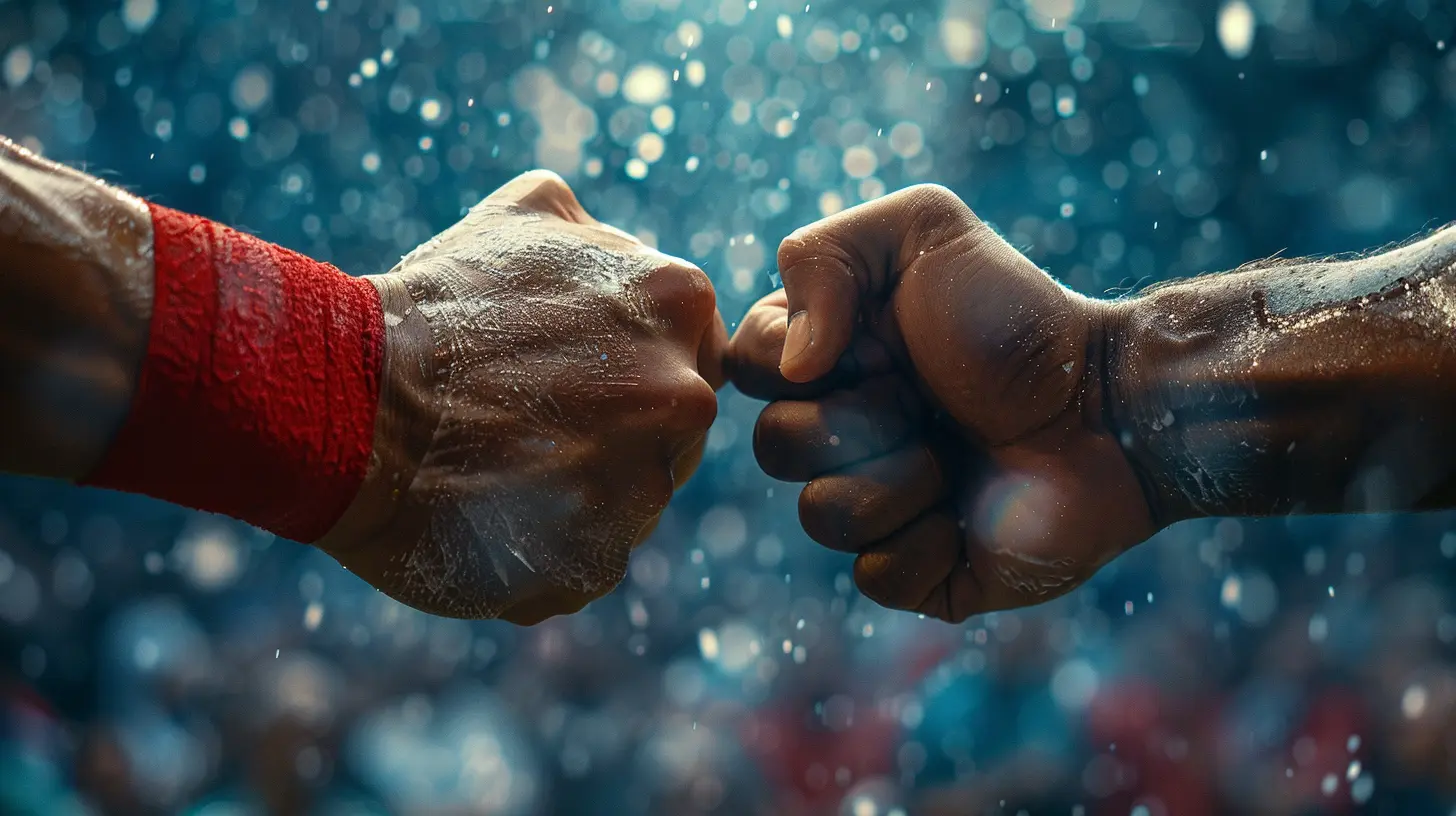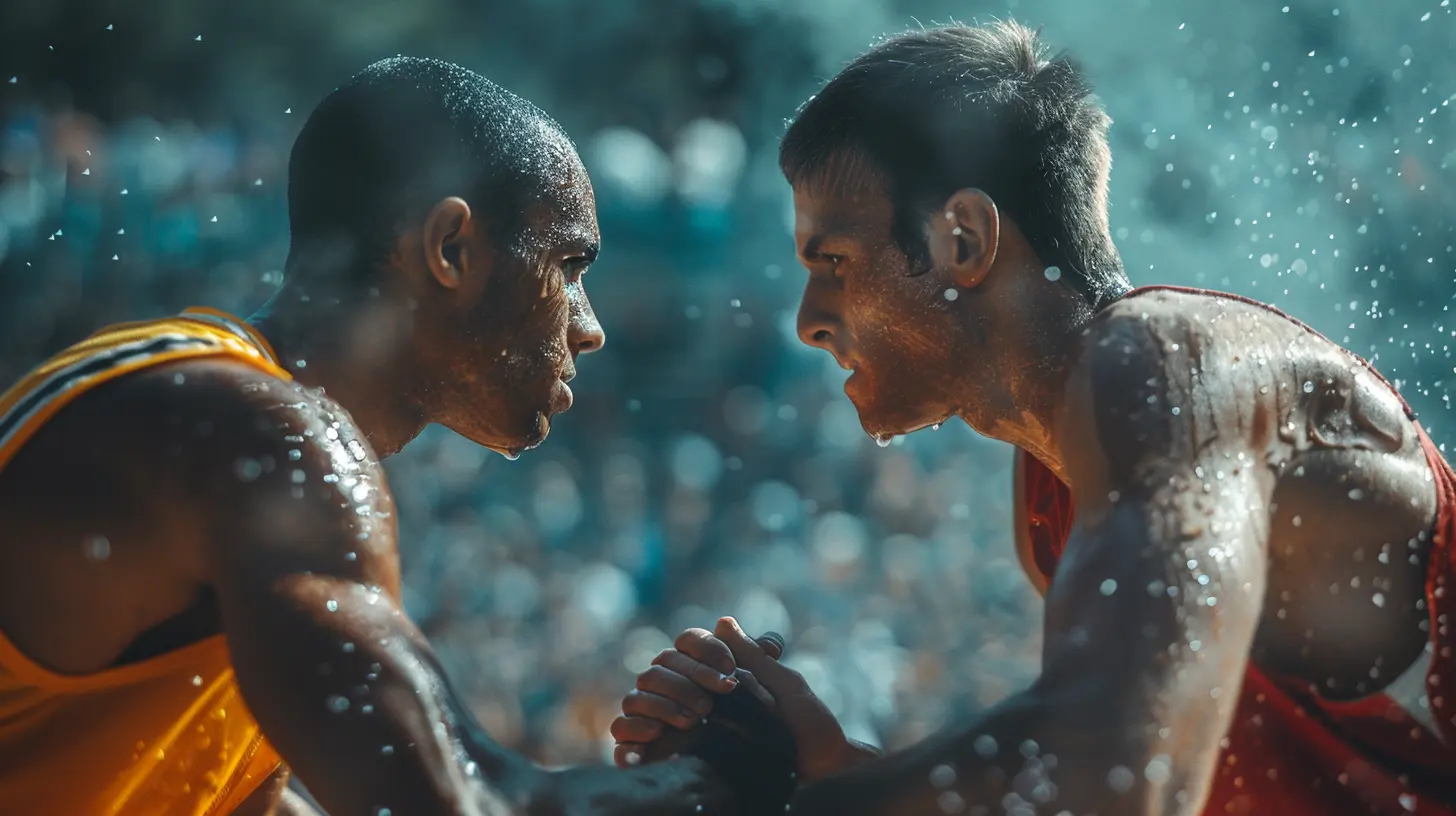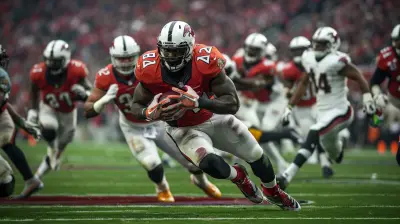Rivalry and Respect: The Magic of Sportsmanship in Competitive Sports
10 June 2025
Let’s face it—sports wouldn’t be half as exciting without a bit of good ol’ rivalry. The goosebumps when your team takes the lead, the tension when the score is tied, and the pure elation (or heartbreak) at the final whistle—it’s all part of the allure.
But here’s the thing a lot of people overlook: behind every hard-fought match, every championship final, and every toe-to-toe battle, there’s something even more powerful than winning. That something is sportsmanship. And when rivalry and respect come together, the magic of sports truly shines.

What Is Sportsmanship, Really?
Let’s keep it real—sportsmanship isn’t just about shaking hands after a game or the classic “good game” pat on the back. It runs deeper. It's about playing fair, keeping your cool even when things get heated, and understanding that your opponent isn’t your enemy—they’re just someone chasing the same glory as you.Think of sportsmanship as the unwritten code of honor between competitors. A silent agreement that no matter how intense the match gets, there’s a line you don’t cross. It’s not weakness—it’s strength under control.

The Beauty of Rivalry
You can’t talk sports without talking rivalry. It’s the gasoline that fuels every epic matchup. From Federer vs. Nadal to Lakers vs. Celtics, rivalry brings out emotions, passion, and, let’s admit it, some pretty legendary moments.But here’s the kicker: without respect, rivalry is just chaos. It turns ugly.
A true rivalry? It’s when opponents push each other to their limits because they respect each other. It’s when two athletes or teams bring out the best in each other, not the worst.
Iconic Rivalries That Defined Sportsmanship
Let’s talk examples—because stories stick.- Roger Federer vs. Rafael Nadal: These two tennis maestros battled it out for over a decade, traded titles and broke records, yet never threw shade. Instead, they admired each other’s game. Nadal once said Federer made him a better player, and Federer returned the compliment. That’s class.
- Magic Johnson vs. Larry Bird: NBA fans know this one. In the ‘80s, these two were the faces of the Lakers and Celtics, the ultimate basketball rivalry. On the court, fierce. Off the court, friends. They even did commercials together, showing rivalry doesn’t mean resentment.
- Serena Williams vs. Venus Williams: Sisters, best friends, and opponents. They’ve faced each other in some of the biggest matches but never let competition come between their bond. That’s the definition of love and respect in sports.

Why Sportsmanship Matters More Than Ever
Let’s be honest—today’s sports scene can get a little…testy. Social media is quick to villainize, fans can turn toxic, and pressure is sky-high. That’s exactly why we need a reminder about sportsmanship.Because winning is great, but how you win? That’s what people remember. And how you lose? That says even more about your character.
It Teaches Life Lessons
Sports are more than scores and medals. They’re life microcosms. The lessons you pick up on the field or court? They stick with you forever.- Respect: You learn to value others, even when you’re competing.
- Humility: Winning without bragging keeps egos in check.
- Grace Under Pressure: Losing without tantrums builds emotional strength.
These traits don’t just make someone a better athlete—they make them a better person.
It Builds Stronger Teams and Communities
Ever seen a team fall apart because of bad attitudes? It’s not pretty.Sportsmanship builds trust. And trust builds teams that stick together even when the going gets tough. Fans are part of this too—respectful rivals make for more exciting, family-friendly, and inspiring sports cultures.

Where Things Go Wrong
We can’t ignore the fact that sometimes, good sportsmanship takes a backseat. Trash talk turns into actual hate, fans boo injured players, and athletes let emotions get the best of them.The media isn’t always helpful either—highlighting drama over dignity.
But here’s the good news—it’s fixable.
Fixing the Culture
So, how do we bring back respect in rivalry?1. Start Young: Teach kids that it’s not just about scoring—the way you play matters.
2. Lead by Example: Coaches, parents, and pro athletes have massive influence. Show, don't tell.
3. Call It Out: If you see bad sportsmanship, speak up. Silence is approval.
4. Celebrate the Good Stuff: Let’s give more attention to moments of class—like when a player helps up an opponent or applauds a brilliant play by the other team.
When Rivals Become Role Models
Some of the most powerful moments in sports aren’t buzzer-beaters or game-winners—they’re moments of human connection. Those blink-and-you-miss-it gestures that remind us it’s just a game, and people matter more than points.The 2016 Rio Olympics – Abbey D’Agostino & Nikki Hamblin
Remember this one? During the women’s 5000m race, D’Agostino and Hamblin tripped and fell. Instead of rushing to finish, they helped each other up and kept running—together. Neither won a medal, but they won hearts.The 2022 World Cup – Hakimi and Ramos
After Morocco beat Spain in penalties, Achraf Hakimi, who was born in Spain but chose to play for Morocco, didn’t run around bragging. He walked straight to Sergio Ramos—his friend and former teammate—and offered a hug and kind words. Pure class.
The Ripple Effect
Here’s the thing—sportsmanship is contagious. One act of grace can change the tone of an entire game. One handshake, one smile, one “well played” can cool tempers and ignite a culture shift.Fans notice. Kids notice. The media notices.
When athletes treat each other with respect, it sets the tone for everyone watching. And in a world that’s often more divided than united, those little moments matter—a lot.
It's Not About Being Soft—It's About Being Strong
Let’s kill the myth that being respectful means being weak. Respect and sportsmanship require serious mental toughness. It’s easy to rage when things don’t go your way. It takes strength to stay calm, compliment your opponent, and keep your dignity intact.Because at the end of the day, real champions aren’t remembered just for their stats—they’re remembered for their spirit.
Final Thoughts: Let the Game Be Fierce, But the Spirit Be Fiercer
Rivalry and respect might sound like opposites, but in sports, they’re two sides of the same coin. You can give your all, go hard, play to win—and still show respect to the person wearing a different jersey.In fact, that’s where the real magic happens.
So whether you’re a player, coach, parent, or armchair quarterback yelling at the TV—remember: it’s not just about the game. It’s about how you play it, how you win, and yes, how you lose.
Because while trophies collect dust, respect lasts a lifetime.
all images in this post were generated using AI tools
Category:
Sportsmanship AwardsAuthor:

Preston Wilkins
Discussion
rate this article
2 comments
Karina Mason
What a fantastic read! It’s refreshing to see how rivalry can coexist with respect in sports. Celebrating the spirit of competition while honoring opponents truly elevates the game. Let's continue to promote sportsmanship and inspire future generations! Keep up the great work!
June 12, 2025 at 12:24 PM

Preston Wilkins
Thank you for your kind words! I completely agree—promoting sportsmanship and respect enriches the spirit of competition. Let's keep inspiring future generations together!
Xavier Ramirez
Absolutely loved this article! It perfectly captures how rivalry can fuel passion while respect keeps the spirit of competition alive. Here’s to celebrating fierce battles on the field and the friendships that blossom off it! Game on! 🏅🎉
June 10, 2025 at 4:04 AM

Preston Wilkins
Thank you for your kind words! I'm glad you enjoyed the article and connected with its message. Here's to the spirit of competition and camaraderie! 🏆


